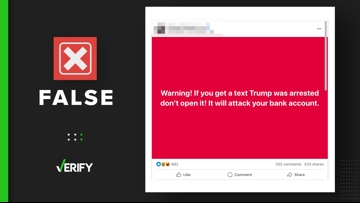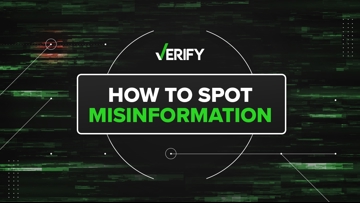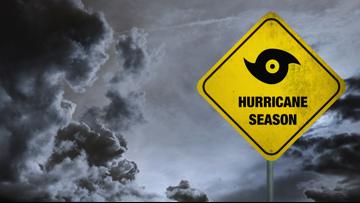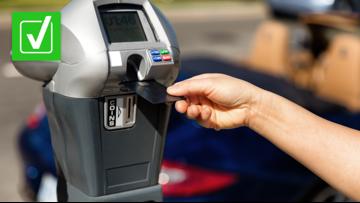In late March, some Verizon mobile users reported getting a suspicious text message, made all the more alarming by its sender: the user’s own phone number.
Verizon customers on Reddit, Twitter and Verizon’s community forum all shared similar stories saying they received the suspicious message. The text message Verizon customers described said some version of: “Free Msg: Your bill is paid for March. Thanks, here’s a little gift for you,” and then included a link.

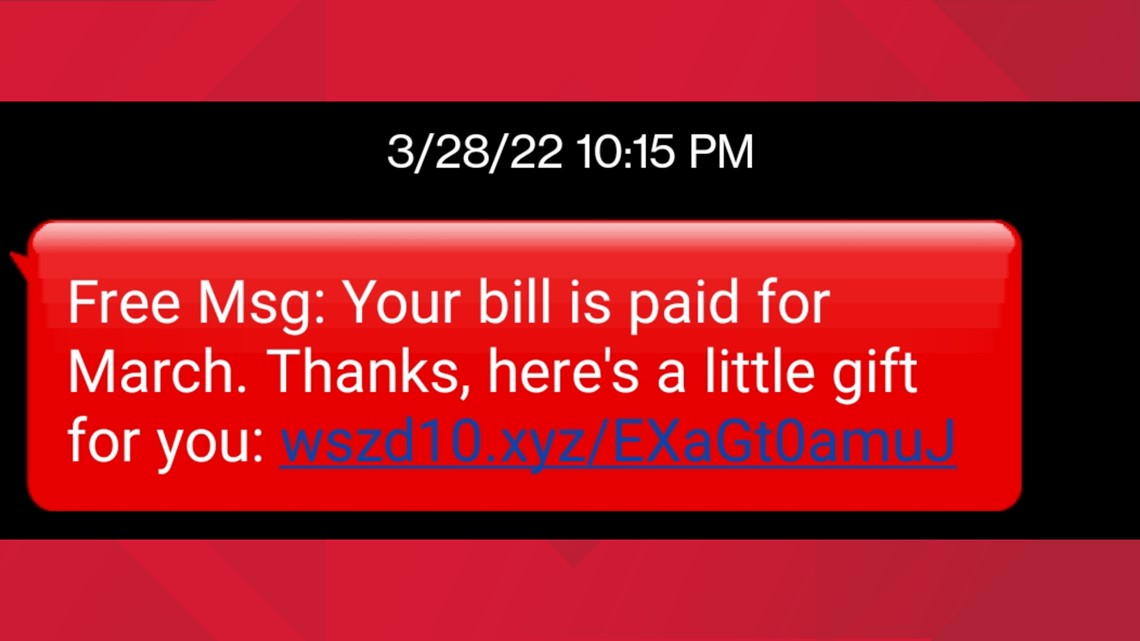
THE QUESTION
Did Verizon send mobile customers a payment confirmation text message from the customers’ own phone numbers?
THE SOURCES
THE ANSWER
No, Verizon did not send mobile customers a payment confirmation text from the customers’ own phone numbers. Verizon said the messages came from “bad actors.”
WHAT WE FOUND
Verizon mobile customers reported receiving the confusing text messages that appeared to come from their own phone numbers on March 28. People who clicked on the link in the text said in community forum posts they were directed to one of two places: Either a website offering a “free” tech gift in exchange for filling out a survey and providing credit card information, or a Russian news website.
Verizon confirmed it did not send the text messages, and the messages were from what they called “bad actors.”
“Verizon has blocked the source of the recent text messaging scheme in which bad actors were sending fraudulent text messages to Verizon customers,” a Verizon spokesperson confirmed to VERIFY. “In this case, the text messages sent appeared to come from the recipient's own number.”
As to one of the links that redirected to a Russian news website, the Verizon spokesperson said: “We have no indication of Russian involvement or that any of our customers' phones were compromised.”
The New Jersey Cybersecurity & Communications Integration Cell called the texts a “SMiShing campaign,” which is an attempt to trick someone over text messages. The organization also said the text messages targeted customers of providers who piggyback off of Verizon’s network, such as Spectrum. It said a similar campaign targeted AT&T customers in August 2021. Posts dated to that time from AT&T’s community forum shows customers received text messages with nearly identical wording to the one Verizon customers recently received.
The fraudulent text messages are typically designed to trick people into handing over personal or financial information to scammers.
Additionally, several Verizon customer support representatives who replied to the community thread about the text messages said the messages used a tactic called “caller ID spoofing.” This tactic is more commonly used with spam calls.
“Scam artists now use technology to make a person's caller ID show their own name and phone number — making it appear as though a person is calling him or herself,” the Minnesota Attorney General’s office warns. “These scam artists are falsifying — or ‘spoofing’ — caller ID information. Spoofing scams are often perpetrated by criminal gangs located outside the state or country attempting to mask their identity and evade law enforcement.”





